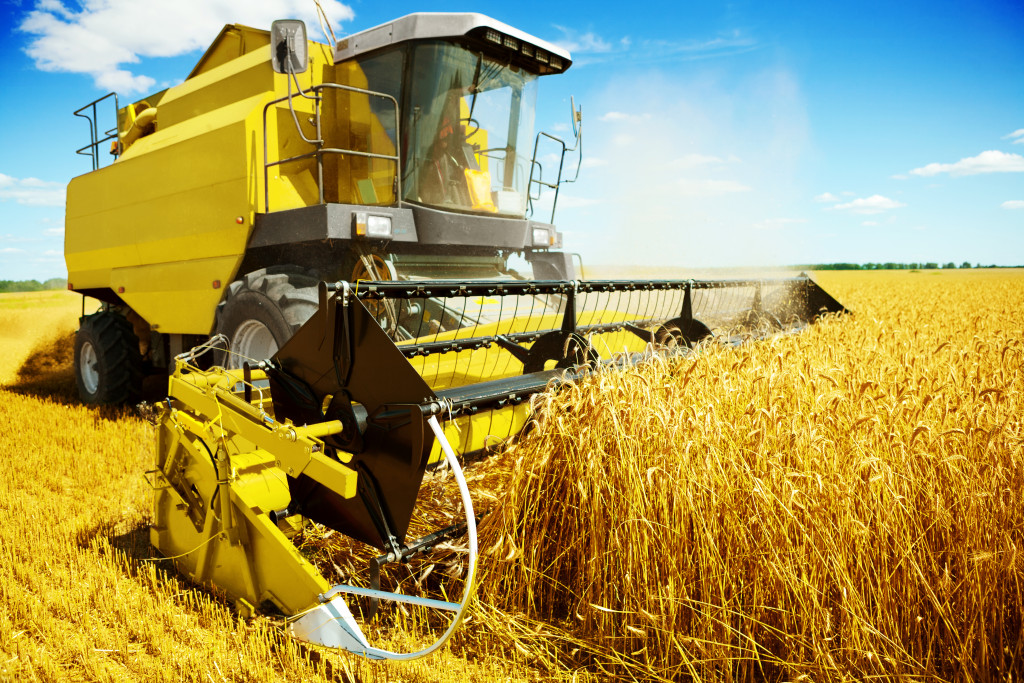
- Assess and select suitable land for farming by considering climate, soil quality, accessibility, and size.
- Proper research, consulting with local experts, and soil tests can help prevent future disasters.
- Develop a clear vision and a business plan with an outline of production plans, financial projections & management structure.
- Identify necessary tools and equipment, invest in farm-specific education & training, and join professional organizations.
- Apprenticeships can provide invaluable real-world knowledge and skills to use on the farm.
Despite a forecasted decline of $25.9 billion from 2022 to 2023 in non-inflation-adjusted dollars, farm income is still estimated to reach $136.9 billion by the end of 2023, an impressive 26.6 percent higher than its 2002-2021 average when inflation is considered! This follows an expected increase of 15.5 percent, with profits rising from$140.9 billion in 2021 to a staggering $162.7 billion in 202–a substantial leap that indicates steady growth within this sector, although any potential decreases over the next year.
Despite the situation, a farm is still a good investment for any entrepreneur. Embarking on a new journey, especially as complex and fruitful as starting a farm, can be an exhilarating and nerve-wracking experience. The process can seem daunting, from planning your land and plotting your crops to tending to your animals and managing your finances. However, with a thorough understanding of the essential principles and knowledge of some key tips, you will be well on your way to establishing a thriving and sustainable farming enterprise. This comprehensive guide can equip aspiring farmers with the tools to navigate this exciting chapter of their lives confidently and successfully.

Assess and Select the Right Land
The foundation of your farming success lies in the land you cultivate. Consider factors such as soil quality, climate, accessibility, and size affecting your farming decisions.
Proper Research
Carrying out proper research, consulting with local experts, and perhaps even conducting soil tests can save you from potential disasters down the line. Remember that your farm’s location will significantly impact your production; therefore, taking the time to analyze these factors will prove vital to your long-term success.
Check Regulations and Resources
Once you’ve identified a suitable piece of land, contact your local government to inquire about any regulations and resources that might be available. While most jurisdictions have laws governing agricultural land use and zoning, some may offer tax breaks or other incentives.
Establish a Clear Vision and Business Plan
Planning and strategizing your farming venture can make all the difference in getting your business off the ground. Develop a clear vision for your farm, such as focusing on organic produce or raising livestock, and outline this in a comprehensive business plan.
Comprehensive Plan
The plan should include a description of the business, the management structure, the marketing plan, the production plan, and financial projections. It will help guide you in setting attainable goals, prioritizing tasks, and securing funding and support from external sources.
Identify the Equipment Needed
Make a list of the necessary tools and equipment you need to start your operation. Consider initial costs and ongoing expenses, such as maintenance and repairs, when budgeting for supplies. If possible, purchase used or recycled items to save money. For instance, you can look for durable used tractors for sale. Buying secondhand equipment allows you to start farm operations even with a limited budget. But you should make sure the equipment is operational.

Invest in Farm-Specific Education and Training
Knowledge is power. Farming requires a unique skill set, and investing in education and training specific to your chosen niche will only help you in your quest for success. Attend workshops or classes, go on farm tours, and network with other industry professionals. Resources such as books and magazines, podcasts, YouTube videos, and blogs can provide valuable insights and advice. Continuous learning and staying up-to-date with market trends, new equipment, and practices will keep you motivated and adaptable as a farmer.
Join Professional Organizations
Another way to stay informed and engaged in the farm industry is to join a professional organization. Being an active member of a trade association or other networks will help you connect with other farmers and gain access to resources, programs, conferences, and discounts on supplies. You may also be able to take advantage of research grants or scholarships that are available through these organizations.
Apprenticeship
Finally, look into apprenticeship or internship programs that may offer hands-on experience in the field and allow you to learn from more experienced farmers. This type of learning will provide invaluable real-world knowledge and skills you can use on your farm.
Starting your farming journey can be a challenging yet incredibly rewarding experience. From selecting the perfect land to investing in farm-specific training, the tips in this guide will help to provide a solid foundation for your farm’s success. Equip yourself with the knowledge, strategic planning, and strong vision to transform your aspirations into reality. Farming is a journey filled with trials and triumphs. Armed with these essential tips, you will be well-equipped to navigate and reap the bountiful rewards that lie ahead.

